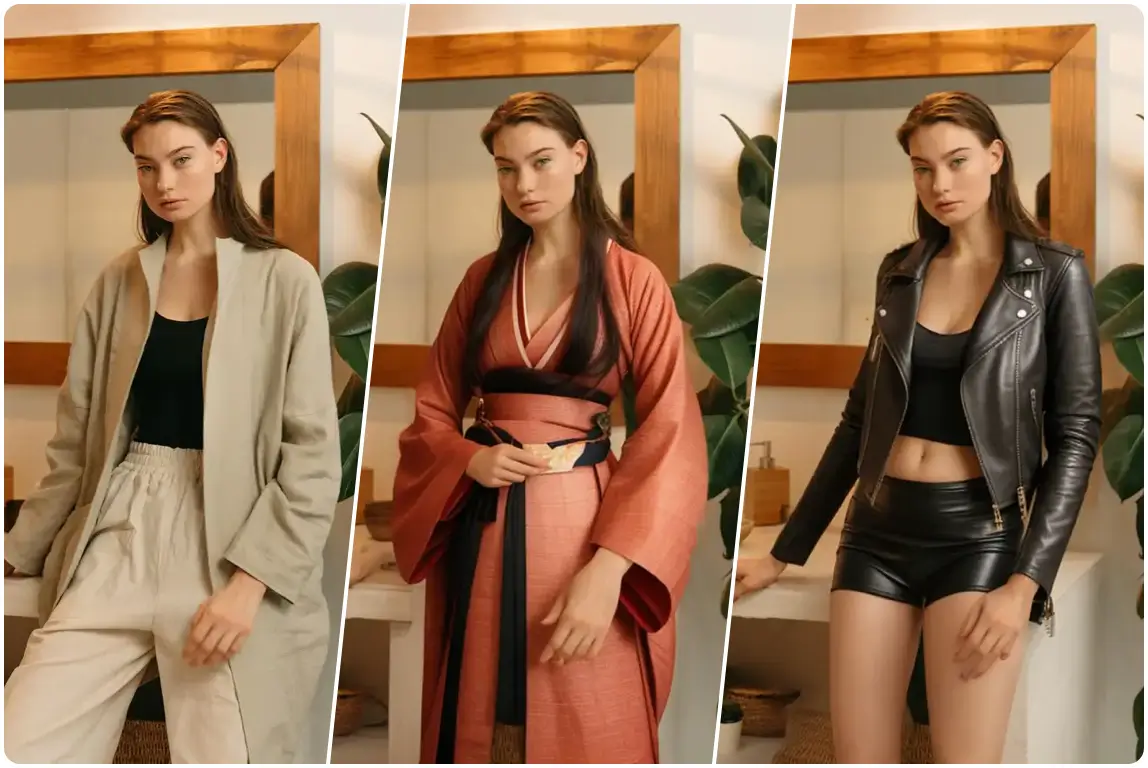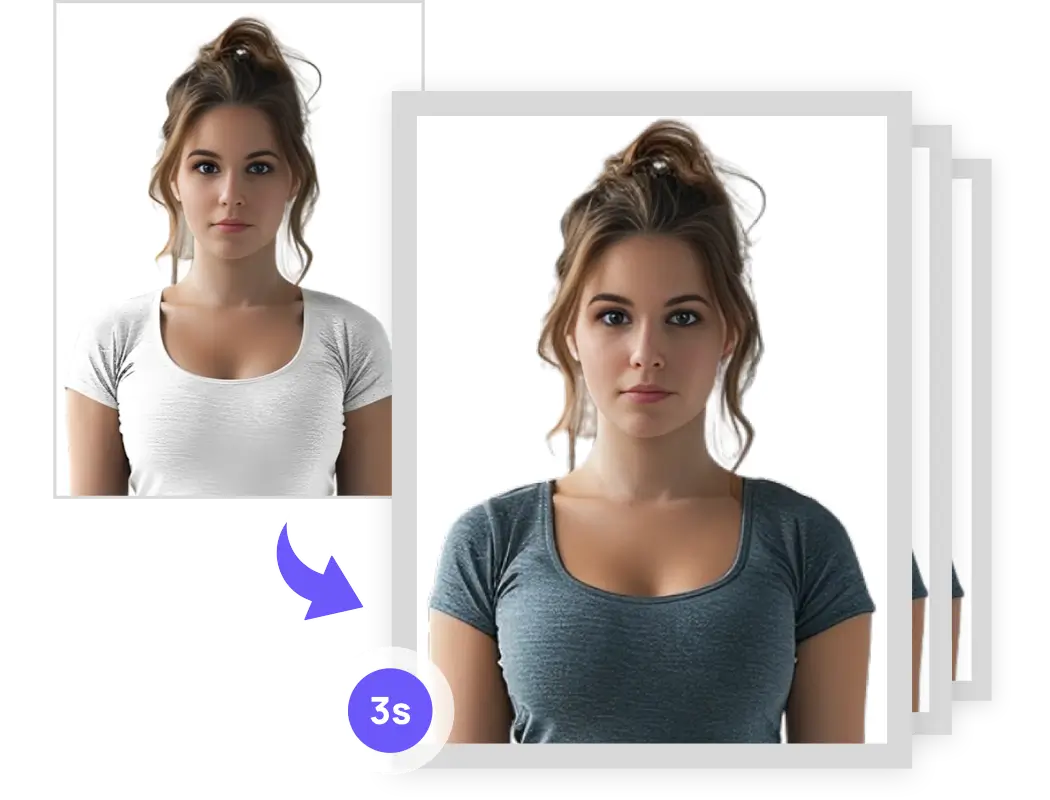
AI Outfit Generator







Create images of yourself in any outfit, from sexy and casual to formal. Explore personalized fashion that suits your unique style.

Explore new outfits, push your fashion boundaries, and discover your unique style. Whether updating your wardrobe or trying new looks, our AI Outfit Generator offers a seamless and inspiring fashion experience. Experience the freedom to try countless combinations, finding the perfect looks that enhance your style. iFoto is your virtual fitting room, empowering you to experiment with confidence and creativity, making new fashion discoveries at every turn.

Revamp your work wardrobe effortlessly with our AI Outfit Generator. Whether you need a work outfit or a uniform, or simply want to plan your professional wear for the week, our tool transforms casual looks into polished, office-ready ensembles in seconds. Simplify your wardrobe decisions with ease and efficiency.

iFoto outfit maker revolutionizes style refreshment with AI, offering an economical approach to exploring new looks without spending on clothes. By generating realistic outfit images, you can digitally plan and perfect your style, making informed decisions about which pieces deserve a place in your wardrobe. Describe your creative ideas to AI for high-quality, print-ready images that can be used as profile pictures on social media or as gaming avatars.

AI Fashion Models
AI transforms fashion mannequins to lifelike models with diverse professional looks.

AI Background for Models
AI showcases your clothing in diverse scenes, offering hundreds of authentic environments.

AI Background for Products
Elevate e-commerce with AI-generated studio-quality product photos and dynamic backgrounds.

Background Remover
Transparent or e-commerce-specific white backgrounds completed in 1 second

Photo Enhancer
Instantly improve image quality, elevate resolution

Clothing Recolor
Clothing recolored. Develop a complete set from a single photo

Cleanup Pictures
Instantly remove unwanted objects, people, logos, and watermarks from your pictures.

Image Recopyright
Free yourself from copyright worries!